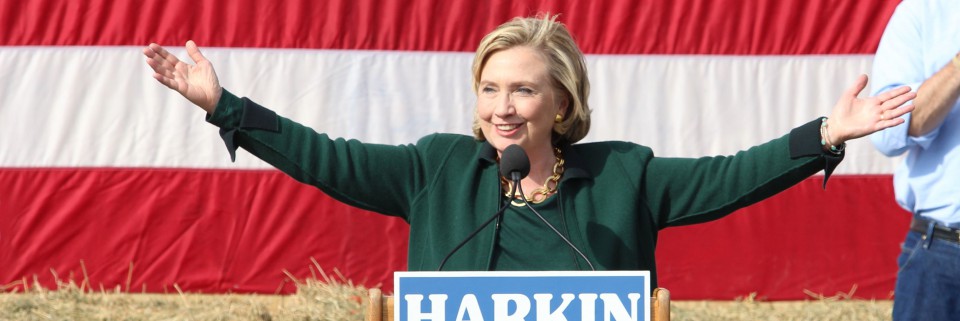Remember Climategate – the manufactured controversy over some emails stolen from the Climate Research Unit (CRU) at the University of East Anglia in Great Britain? If so, you remember lots of right-wing noise, and little or no substance, right? But lots and lots of noise.
Do you also remember the Missouri congressman who grabbed onto the so-called controversy and used it like a big, ugly club to batter cap-and-trade legislation? If you guessed that it was Rep. Blaine Luetkemeyer (R. 9th) you would be right.
Remember Luetkemeyer’s strident demands for a congressional investigation into Climategate? Why? Because, as he put it:
… the “Climategate” emails seem to indicate that the same scientists who were sending data to the UN climate panel were suppressing scientific evidence and manipulating data that was used in part as justification for liberals to pass cap-and-trade legislation.
Recently, though, the first of the actual British investigations (as opposed to bloviating press releases and general bullyboy behavior on the part of climate-change deniers in the U.S. Congress) presented its findings which have “largely vindicated the scientists involved”:
The House of Commons’ Science and Technology Committee said Wednesday that they’d seen no evidence to support charges that the University of East Anglia’s Climatic Research Unit or its director, Phil Jones, had tampered with data or perverted the peer review process to exaggerate the threat of global warming – two of the most serious criticisms levied against the climatologist and his colleagues.
In their report, the committee said that, as far as it was able to ascertain, “the scientific reputation of Professor Jones and CRU remains intact,” adding that nothing in the more than 1,000 stolen e-mails, or the controversy kicked up by their publication, challenged scientific consensus that “global warming is happening and that it is induced by human activity.
None of which is at all surprising to those who were actually paying close attention to the claims and counter-claims when the so-called scandal broke. At that time the incendiary emails didn’t seem to amount to much more than some trash talk among scientific colleagues directed, understandably enough, towards climate change skeptics, some ambiguous phrases pertaining to data display mechanisms, etc.
Nor, however, will this finding probably quiet critics such as Rep. Luetkemeyer. The fact that the report did chide the scientists at the CRU for refusing to share their raw data and for their reluctance to respond to freedom of information requests has already provided the usual suspects with a pretext to claim that their lurid fantasies about the content of the emails have not yet been disproved.
It will be interesting to see how Luetkemeyer responds to this report – if he ever does. The controversy, after all, was never really about what the emails really said or did not say, but what they could be made to seem to say – and Blaine Luetkemeyer did yeoman’s duty trying to present them as the requisite smoking gun that could prove climate science fraud. He will, doubtless, be as loth to let facts stand in the way of his anti-science bluster now as he was earlier.

“The fact that the report did chide the scientists at the CRU for refusing to share their raw data and for their reluctance to respond to freedom of information requests has already provided the usual suspects with a pretext to claim that their lurid fantasies about the content of the emails have not yet been disproved.”
Refusing Freedom of Information requests is an act requiring more than chiding. I would ask if the situation was flipped, and a right wing organization refused to provide information covered by the FOIA, would you be so quick to ridicule? Consider Bush and the torture memos as a good example.
Before you jump to the conclusion this is some kind of troll response, understand I have never voted anything but Democrat my entire life. I’m new here, so you may have proved the whole Climate-gate scandal to be completely without merit. If you have, please provide a link because your proof would be the first I’ve seen.
To be progressive, shouldn’t one be more interested with facts in science and theory in politics. Without scientific facts to back up proposed legislation, don’t you merely replicate the faults seen in Bush’s WMD fabrications?